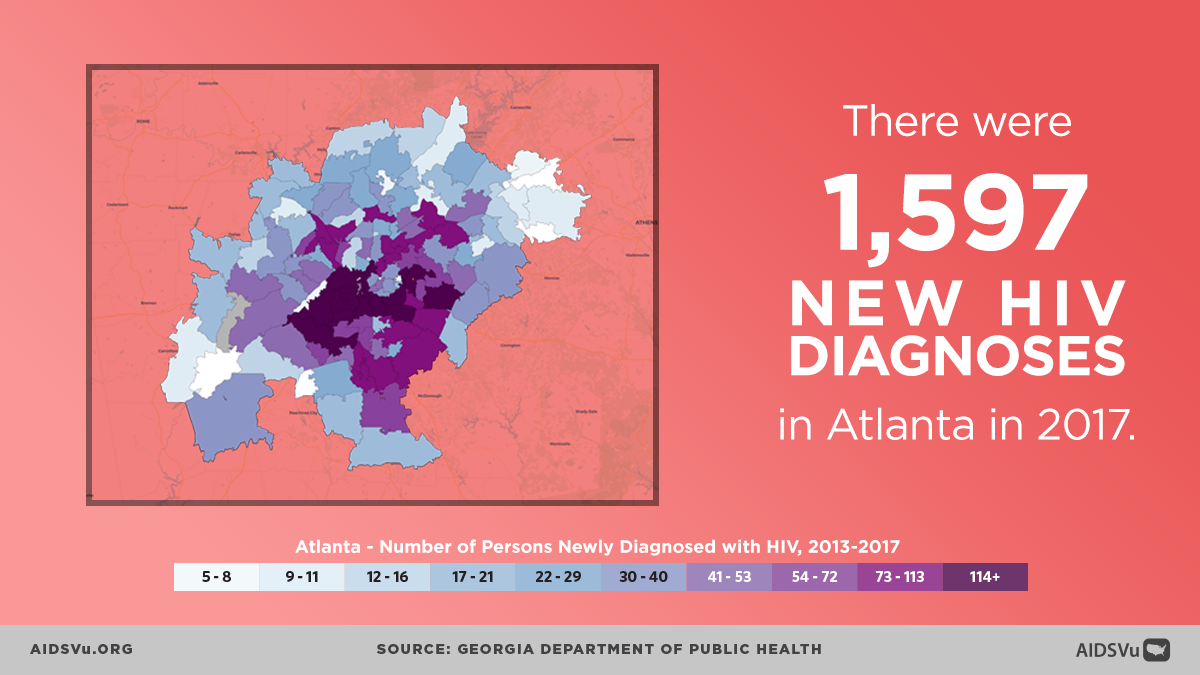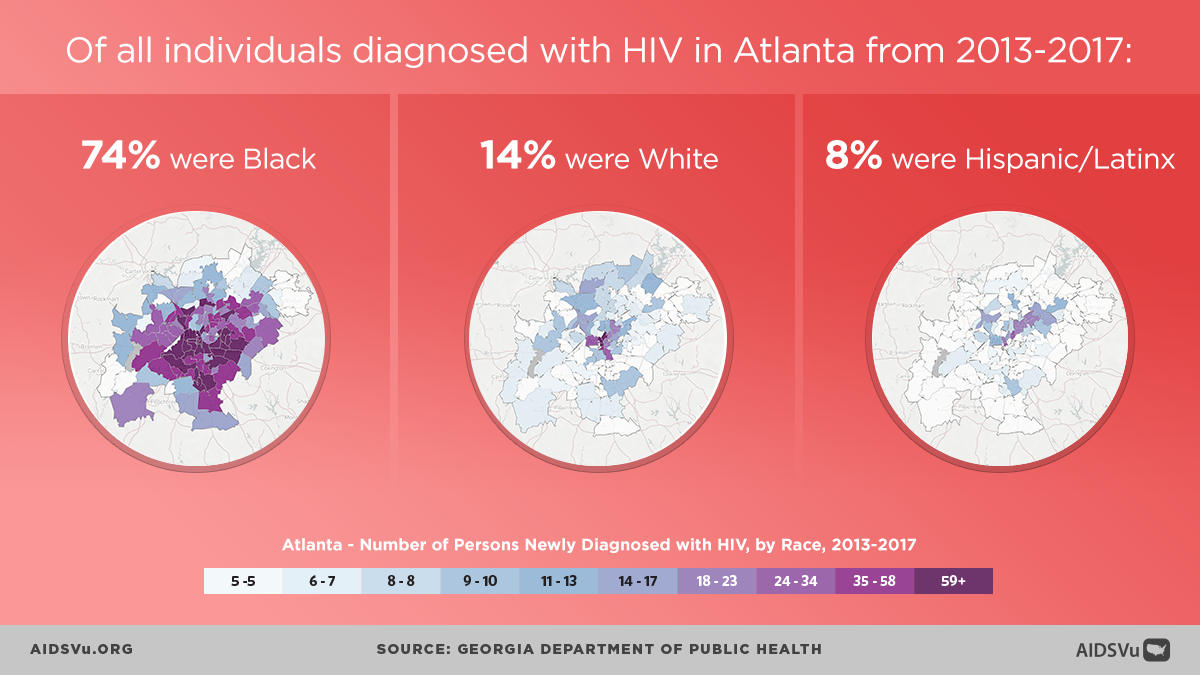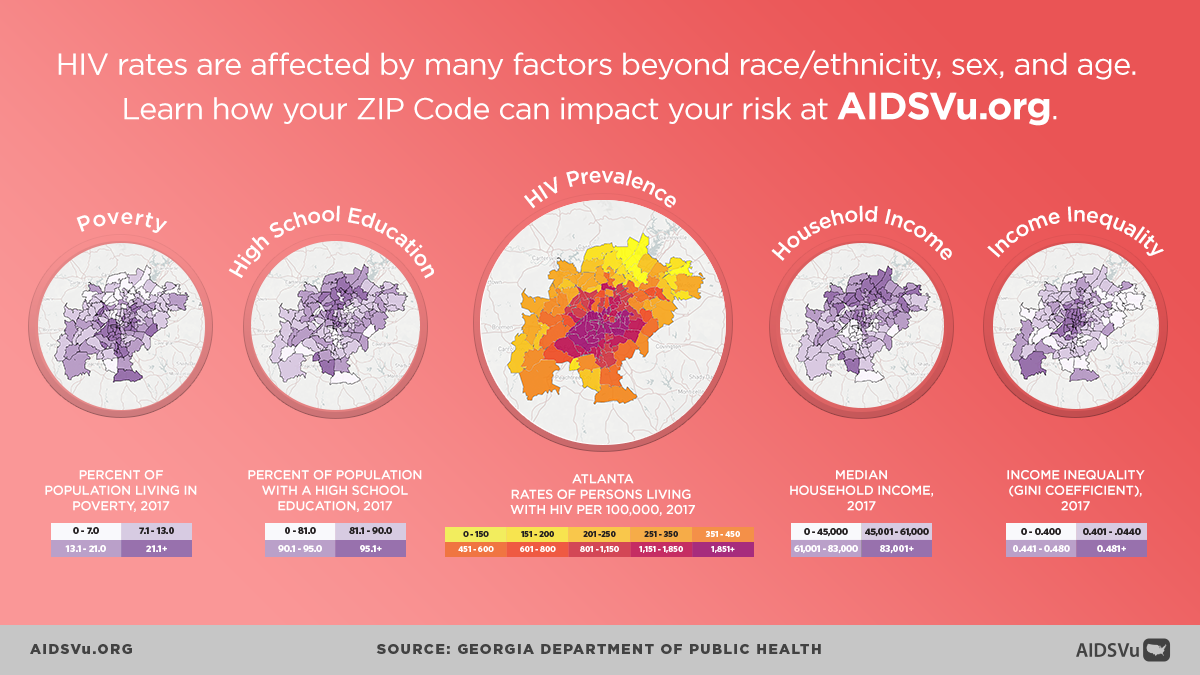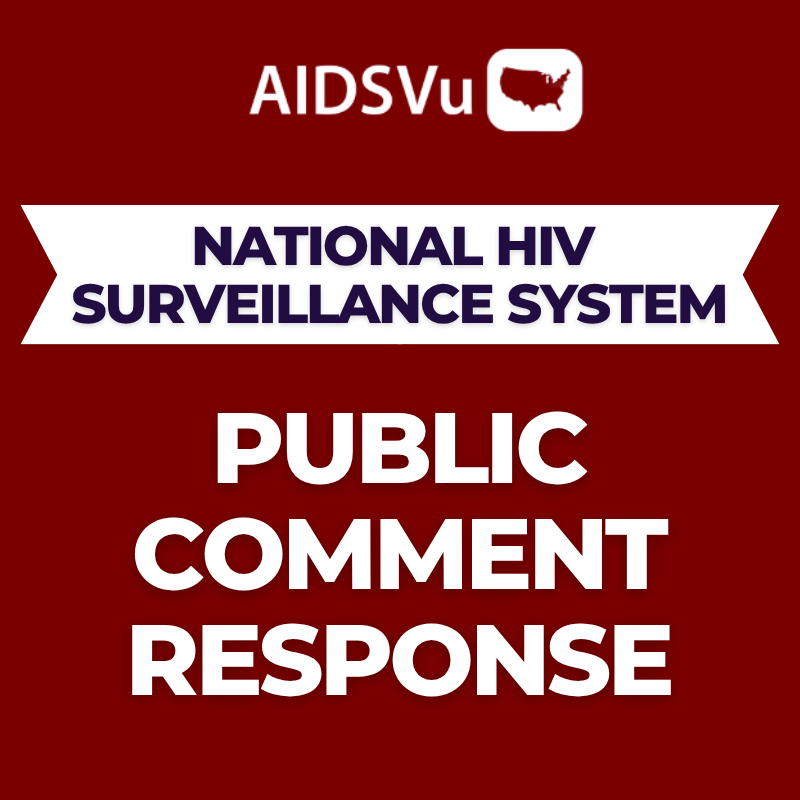Today, AIDSVu released 2017 ZIP Code-level data and interactive maps for nearly 40 cities across the United States, including Atlanta. HIV disproportionately impacts people of color in the South, and Atlanta is a key example of this trend. According to the most recent census data, Black people account for 35% of the population of Atlanta, yet in 2017, 70% of people living with HIV in Atlanta were Black. Further, the rate of Black women in Atlanta living with diagnosed HIV is 15 times that of White women.
Both the Georgia Integrated HIV Prevention & Care Plan 2017-2021 and The Strategy to End AIDS in Fulton County are Atlanta’s contributions to a series of state-, city-, and jurisdiction-wide Ending the Epidemic/Getting to Zero plans. Georgia DPH, Office of HIV/AIDS is partnering with the Ryan White Part A Program Fulton County, Ryan White Program Part A Metropolitan Atlanta HIV Health Services Planning Council, Georgia Prevention & Care Council, Fulton County Health Department, and the Dekalb County Board of Health on the plan. The plan is a comprehensive effort to eliminate HIV/AIDS in Atlanta and across the entire state of Georgia.
Another set of important factors that determine HIV risk are social determinants of health such as poverty, health insurance status, high school education, income inequality, and median household income. In Atlanta, when you compare these maps you can see that there are strong correlations between these social determinants of health and HIV prevalence and new diagnoses.
Although each community has unique challenges to tackle through education, testing, and treatment, new HIV infections can be eliminated throughout the United States. If you are at risk for HIV, find testing services in Atlanta today and know your status.
If you are living in the Atlanta Metro Area:
- EDUCATE FAMILY AND FRIENDS: View our local statistics to see how HIV impacts your community.
- LEARN MORE: Check out the Georgia Department of Public Health’s resources to learn more about their plan to end HIV in the state.
- GET TESTED: Visit AIDSVu.org/testing to find a testing site near you.
- FIND PrEP PROVIDERS: Use AIDSVu’s PrEP locator to find a PrEP provider near you.








